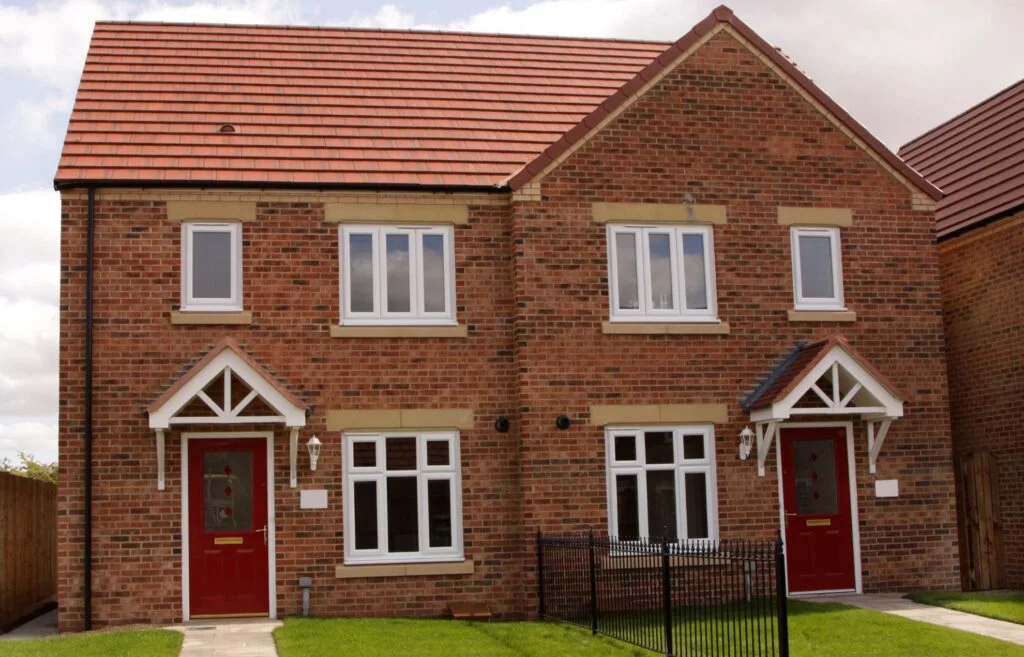How Much Do New Windows Cost for a 3-Bedroom House 2025?
Replacing the windows in a 3-bedroom house is one of the most effective ways to improve energy efficiency, increase property value, and enhance kerb appeal. But the question on most homeowners' minds is: how much do new windows actually cost for a 3-bedroom home? In this guide, we'll break down typical prices, factors that influence cost, and how to make smart choices to get the best value for your investment.

Three Bedroom House with New Windows
Average Cost of New Windows for a 3-Bedroom House in the UK
The average 3-bedroom house in the UK has between 8 and 12 windows, depending on layout, extensions, and architectural style. Based on 2025 market data, here are the average costs for new double glazed windows, fully fitted:
- uPVC windows: £400 - £650 per window
- Aluminium windows: £600 - £900 per window
- Timber windows: £850 - £1,200 per window
So, for a full house replacement (8-12 windows), you can expect the following total costs:
- uPVC: £3,200 - £7,800
- Aluminium: £4,800 - £10,800
- Timber: £6,800 - £14,400
These prices include supply and installation but may vary depending on your location, the company you use, and the specification of the window units.
Factors That Affect Window Replacement Costs
Window prices can vary significantly depending on several key factors. Understanding these can help you better budget and plan for your window replacement project.
1. Frame Material
uPVC is the most popular choice in the UK thanks to its affordability and low maintenance. Aluminium offers a sleeker, more modern look and greater strength, ideal for larger panes. Timber is a premium choice that offers character and excellent thermal properties but comes with a higher cost and maintenance requirements.
2. Glazing Type
Most homeowners opt for double glazing, but triple glazing is also available. While more expensive (usually 20-30% more), triple glazing provides superior insulation and soundproofing — ideal for urban areas or exposed locations.
3. Window Style and Size
Casement windows are typically the most affordable. Sash windows, bay windows, and custom-shaped units cost more due to the complexity of manufacture and fitting. Larger windows also cost more due to the additional materials and labour involved.
4. Number of Windows
Obviously, the more windows you replace, the higher the total cost. However, many installers offer discounts for bulk orders, so replacing all your windows at once can sometimes be more cost-effective than doing them in stages.
5. Installation Complexity
Simple window swaps (replacing like for like) are quicker and cheaper. If structural alterations are needed — for example, enlarging openings or switching from a casement to a bay window — expect additional labour and materials costs.
6. Location
Prices can vary depending on where you live in the UK. Installation costs are typically higher in London and the South East, while homeowners in the North or rural areas may pay less overall. Travel time, access, and property type also affect pricing.
Additional Costs to Consider
When budgeting for new windows, there are a few potential extras you should factor in:
- Window cills or trims
- Disposal of old windows
- Upgraded security locks or handles
- Coloured or woodgrain finishes
- Building regulations approval (especially for listed properties)
Many companies include these in their quoted prices, but it's worth confirming to avoid surprises later.
Can You Save Money on New Windows?
Yes, there are several ways to reduce the cost of replacing the windows in your 3-bedroom home:
- Get multiple quotes: Always compare prices from at least 3 reputable installers.
- Replace all windows at once: Bulk installation often reduces per-unit labour costs.
- Stick with standard sizes: Custom windows cost more.
- Choose uPVC: It's the most cost-effective and widely available option.
- Look for FENSA-registered companies: Ensures compliance and may prevent costly issues later.
Energy Savings and Return on Investment
While new windows are a significant upfront investment, they can pay for themselves over time through improved energy efficiency and increased property value. Modern A-rated double glazed windows can significantly reduce heat loss, cutting your energy bills by up to £150–£250 per year, depending on your current window condition and insulation levels.
Plus, homes with new windows are more appealing to buyers and can often sell faster and at a higher price. Good quality windows are seen as a major asset, especially if they come with a long guarantee (typically 10–20 years).
Grants and Financing Options
Although government grants for windows are limited in 2025, some local councils and energy providers offer incentives or financing plans for energy-efficient upgrades. It's also worth exploring green home improvement loans or installer finance packages that allow you to spread the cost over time.
How to Choose the Right Window Installer
The installer you choose will have a major impact on the final cost and quality of the job. Look for companies that are:
- FENSA or Certass registered
- Backed by a clear guarantee
- Well-reviewed online
- Transparent with pricing and timelines
A professional installer should offer a free site survey, a written quotation, and advice tailored to your specific home and preferences. Avoid companies that use high-pressure sales tactics or quote without seeing your property first.
Conclusion: Budgeting for New Windows in a 3-Bedroom House
So, how much do new windows cost for a 3-bedroom house? The answer depends on materials, styles, glazing, and installation complexity — but expect to pay between £3,000 and £14,000 for a full replacement in 2025. uPVC windows offer the best balance of price and performance, while aluminium and timber provide premium aesthetics at a higher cost.
Ultimately, investing in quality windows is one of the smartest ways to improve your home’s comfort, efficiency, and value. With the right planning, installer, and design choices, you can achieve a stunning result without overstepping your budget.













Great post! Glazing is such an important aspect of both aesthetics and energy efficiency in modern buildings. It’s amazing how the right glass choices can completely transform a space while also improving insulation and reducing noise. Thanks for sharing!